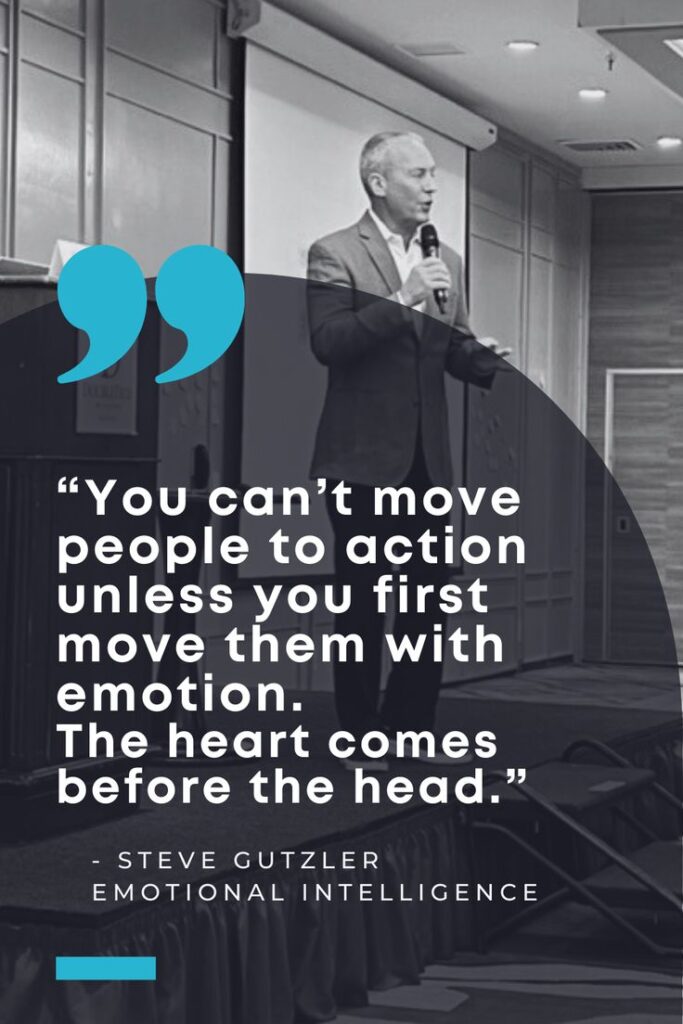Emotional Intelligence: Your past reactions often reveal patterns, responses we default to in moments of pressure, frustration, or conflict. Sometimes, we look back and wish we had spoken differently, acted with more patience, or handled a situation with greater wisdom. Frankly, change doesn’t happen simply by regretting the past.
The thing is, in your current state, if you are given the chance to relive those moments, you would act the same or even worse than before. Like I noted earlier, change doesn’t happen simply by regretting the past; it happens when we understand why we reacted the way we did and develop the self-awareness to do better next time.
In order to improve on your reaction, you need to have an understanding of your emotions (know your strengths, weaknesses, and triggers), control your behaviour, and be aware of the feelings of people around you. This is called EMOTIONAL INTELLIGENCE (EQ)
We all have an innate level of EQ that needs to be strengthened because it has the power to improve our work, relationships, and overall quality of life.
The components of EQ are Self Awareness, Self Reflection, Motivation, Empathy, and Social skills. Each of these is a broad topic on it’s own.
Benefits of Emotional Intelligence
- Enhanced Decision Making: When you are aware of your emotions and are able to control your behaviour, you’ll be able to stay calm, think clearly, and consequently make rational decisions.
- Foster Stronger Collaboration: Knowing the emotions of your team will make you adapt behaviour to get the best response from them. This will also enable you to resolve any conflict and provide a harmonious work environment for all.
- Healthier Relationships: Showing empathy and being patient with others creates a deeper bond.
- Boosts your credibility as a leader: When you are known to be emotionally intelligent, you will earn the trust of others. You’ll be able to guide, influence, and lead in any circle.
- Individuals with high EQ are known to bounce back faster after a setback.
How To Improve Your Emotional Intelligence
1) Practice Self-Awareness:
One of the most powerful habits you can develop is checking in with yourself genuinely, consistently, and without judgement. Life moves fast, and it’s easy to get swept up in it without pausing to ask, “What am I feeling right now? Why? Where is this coming from?”
Maybe it was something someone said. Maybe it was a lingering thought or a subtle trigger from the past. Whatever it is, naming your emotions without downplaying or over-explaining them is the first step to owning your inner world. It’s how you move from being emotionally reactive to emotionally aware.
Self-awareness doesn’t mean perfection. It means paying attention. Noticing your reactions, tracing them back to their roots, and asking yourself, “Did I handle that the way I wanted to? What could I do differently next time?” It’s not about overthinking every interaction; it’s about being honest with yourself and gently making room for growth. And when possible, don’t wait for “next time”. If you can still fix, explain, or soften the present moment, do it. That’s growth in real time.
The more you practise this quiet form of self-leadership, the more emotionally grounded you become. True self-awareness isn’t just knowing how you feel; it’s knowing how your feelings shape your choices and choosing to grow anyway.
2) Get Outside Input:
Sometimes, we’re just too close to ourselves to see the full picture. Self-reflection is powerful but it has its blind spots. That’s why it’s important to invite one or two people you trust to speak into your life honestly and unfiltered. No sugar-coating. No ego-stroking. Just truth with love.
It might sting a little. Actually, if they’re being real, it probably will. But that discomfort is a gift. Their perspective can reveal patterns you’ve grown used to, habits you’ve normalised, or blind spots you’ve never even noticed. It’s not about letting others define you, nah, it’s about expanding your self-awareness through the lens of trusted insight.
Pay close attention to the themes. Are certain qualities or flaws mentioned more than once? That’s a clue. Keep nurturing the good stuff: your strengths, your light, the things they admire in you. Don’t run from the hard truths. Sit with them. Ask yourself what needs to shift, and begin the work, not to impress anyone, but to grow into the version of you that feels most aligned.
This kind of feedback isn’t always easy to receive, but it’s one of the fastest ways to grow. It’s brave to ask, but it’s even braver to listen and do something with what you hear.
3) Open up:
Let people see the real you. Not the polished version curated for approval. Not the version that always has it together but the honest, evolving, beautifully imperfect human underneath it all. There’s something magnetic about authenticity. When you stop performing and start being, people feel it. They relax around you. They trust you because, deep down, we’re all just looking for permission to be ourselves too.
So share your stories, the real ones. The ones where you stumbled, doubted, or didn’t have the answers. Not to be pitied or praised, but to remind someone else they’re not the only one still figuring things out. That kind of honesty is healing.
When you’re wrong or uncertain? Own it. There’s nothing weak about vulnerability. In fact, it takes strength to say, “I don’t know” or “I messed up.” That’s how real connection happens: in the unfiltered spaces where perfection steps aside and honesty takes the lead.
Open-hearted living is not always easy, but it’s worth it. The more you let people see the real you, the more you’ll attract the kind of relationships that actually see and accept you for who you are, not who you pretend to be.

4) Embrace feedback:
Feedback, when received with the right mindset, is one of the most underrated gifts for personal and professional growth. It’s not always easy to hear, especially when it touches a sore spot, but learning to accept constructive criticism without taking it as a personal attack is a mark of emotional maturity.
Instead of getting defensive or shutting down, pause. Breathe. Listen fully. Not every critique will be delivered perfectly, but within it, there may be something valuable, like a perspective you hadn’t considered, a blind spot you’ve missed, or a habit that’s been holding you back quietly. Reflect on it. Keep what serves you. Let go of what doesn’t, but do so without resentment.
Also, when it’s your turn to give feedback, be intentional. Feedback isn’t about tearing down as many assume it to be. It’s about building up. Speak clearly and kindly. Be specific, not vague. Offer solutions, not just criticism. Balance truth with empathy. The goal isn’t to win points or prove superiority, it’s to help someone else grow without shrinking their spirit.
The more gracefully you learn to give and receive feedback, the more grounded, respected, and self-aware you become. Growth rarely happens in comfort, but it always finds us in the moments we’re willing to listen and learn.
5) Be composed:
Emotions are contagious. The energy we carry has a way of spilling into the spaces we occupy. Your calm can steady a room. Your chaos can unsettle it. That’s why composure is not just a personal skill; it’s a quiet form of leadership.
When things get stressful or uncertain, it’s easy to react from a place of panic, frustration, or anxiety. But in those very moments, how you respond becomes a message. To yourself. To others. To the atmosphere around you. Staying calm doesn’t mean you’re unaffected. It means you’re choosing not to let the storm outside dictate your internal weather.
Make no mistake, people notice. They always do. Whether in a family, workplace, or friendship circle, your ability to remain composed can create a ripple effect. It offers others a sense of safety, clarity, and reassurance. It makes you someone others instinctively turn to, not just because you have answers, but because your presence brings peace.
Composure isn’t about suppressing your feelings. It’s about regulating them. Honouring them without letting them take over, and in a world that often rewards loud reactions, your calm will speak volumes.
6) Be approachable and empathic:
Being approachable isn’t just about looking friendly, it’s about making others feel safe. It’s the energy you carry, the tone of your voice, the way you listen without judgement, and the subtle signals that say, “You can be real here.”
In a world where so many people walk around guarded, worn down, or misunderstood, your openness can be a soft landing. Your presence can be a quiet invitation: come as you are. You’ll be heard.
True empathy, goes deeper than simply saying, “I understand.” It’s about showing someone their feelings have weight. That their experiences matter. It’s not about solving their problems or rushing to offer advice. It’s about sitting with them in their moment without flinching or turning away.
When people feel emotionally safe around you, they open up. They trust you. And they begin to heal in ways you might not even realise. That’s the real power of empathy. It doesn’t need grand gestures. It just needs presence, patience, and a heart that sees without judgement.
So smile, but also listen deeply. Ask gently. Hold space honestly, because being approachable and empathic isn’t about charm, it’s about connection.
7) Set boundaries:
Boundaries here aren’t walls but they’re bridges to healthier relationships and deeper self-respect. They let others know where you stand, what you value, and how you expect to be treated; not as a form of control, but as a form of clarity.
You don’t need to shout them. You don’t need to defend them with anger. Just be firm, calm, and respectful in your communication. Make your standards known by how you show up and how you respond when they’re tested. People will treat you based on what you tolerate so teach them by example.
Standing by your values may disappoint some people. That’s okay. You’re not here to please everyone. You’re here to live in alignment with who you are. Saying “no” when you mean it, walking away when necessary, or speaking up when something feels off isn’t rude, it’s self-respect in motion.
Protecting your emotional space doesn’t make you selfish. It makes you whole. It allows you to give from a place of fullness, not depletion. And when you honour your own boundaries, you unconsciously give others permission to do the same.
Remember: peace of mind is worth protecting. The people who truly value you won’t resent your boundaries, they’ll respect them.
Finally, Silence, presence, boundaries, empathy, and self-awareness are not just traits of emotional intelligence; they’re quiet superpowers that shape how we show up in the world. Mastering them won’t happen overnight, but every small step you take brings you closer to deeper connections, healthier communication, and a more grounded version of yourself.
Remember, personal growth is not always loud. Sometimes, it looks like choosing not to react, listening more than you speak, or walking away from what no longer feels right.
Which of these resonated with you the most?
Stay frosty.




